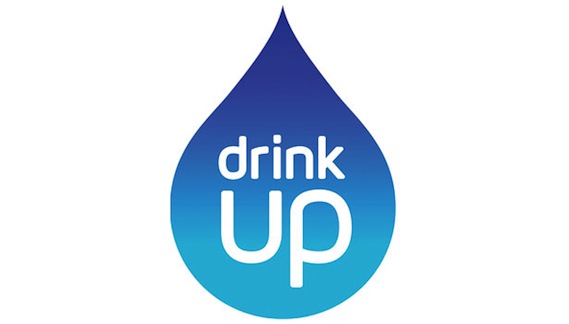It’s time to put on our thinking caps as Andy Bellatti, MS, RD is back with more on food politics. This series was started as a way to open up honest communication about injustice, food politics, and the food we decide to put in our grocery carts.
Last month, I introduced you to the concept of food politics — a field that looks at how food recommendations, nutrition policy, and our overall food system (from farm to table) is influenced by political influences. Food politics is quite a broad category, as it encompasses everything from farm subsidies and the United States Department of Agriculture’s MyPlate to how the soda industry hides behind lobbyist and food groups to battle proposed public health policies that would affect its bottom line.
For this month’s column, I want to focus on two case studies of food politics at work — The First Lady of the United States’ health initiatives — Let’s Move and Drink Up.
Let me begin with the following disclaimer: I appreciate Michelle Obama embracing issues of health and nutrition and bringing them to light. At face value, promoting physical activity and the consumption of water are certainly positive health-related messages. However, we also need to take a step back, examine the situation, and make some careful observations.
The Let’s Move campaign — “developed to solve the epidemic of childhood obesity within a generation” — consists of the following five pillars:
- Creating a healthy start for children
- Empowering parents and caregivers
- Providing healthy food in schools
- Improving access to healthy, affordable foods
- Increasing physical activity
That certainly sounds great in theory, but what does the reality look like? For starters, the name of the campaign — “Let’s Move” — avoids any notions of eating healthier, and parrots the food industry’s number one talking point: that what matters most is physical activity (in 2008, PepsiCo CEO Indra Nooyi stated that if consumers exercised “and did what they had to do”, there would be no obesity), despite evidence showing that physical activity is not the main driver of weight loss.
Here is one tidbit that may help put all of this in perspective – since The First Lady’s husband took office in 2009, Big Food and Big Soda have spent almost $200 million in lobbying. That partially helps to explain why Let’s Move isn’t “Let’s Drink Less Soda” or “Let’s Eat Fewer Cheetos.” Physical activity is politically safe; nutrition is not.
What about Drink Up, the campaign from this September which recommended that Americans drink more water?
The list of supporters includes the American Beverage Association (a front group for companies like Coca-Cola and PepsiCo) and various bottled water companies (some of which are owned by soda companies). It is no surprise, then, that Drink Up also shares a very politically safe message of “drink more water”. Positive reinforcement is certainly helpful. but we also can’t bury our heads in the sand, especially in a day and age when the average American consumes 45 gallons of sugar-sweetened beverages a year. But, again, how can we expect a program that has soda companies as partners to tackle that topic?
Both of these programs perfectly exemplify the pitfalls that come when the public sector joins forces with industry. Too often, messaging gets watered down and framed in a way that absolves industry of any wrongdoing.
And, that, folks, is one very slippery food politics slope.
Andy Bellatti, MS, RD is a Las Vegas-based nutritionist with a plant-centric and whole-food focus. His work has been published in Grist, The Huffington Post, Today’s Dietitian, Food Safety News, and Civil Eats, among others. He is just as passionate about healthful eating as he is about food politics, deceptive Big Food marketing, and issues of sustainability, animal welfare, and social justice in our food system. He is the creator of the Small Bites blog (which, though now closed, has almost 2,000 archived posts). You can also follow Andy on Twitter and Facebook.
Do you have any questions for Andy? Leave a comment below!





This is a great post, Andy. It is so true that what Americans see is a health campaign, but really there are other motives behind it. Big Soda and Big Food never want to be implicated in the obesity epidemic, and they will spend their money lobbying for that privilege. Americans should be outraged, but the slight of hand, smoke and mirrors keep their attention on something else all the while.
Thank you, Samantha. Very insightful comment.
Great post!! Big fan of your work Andy!
Thank you. Appreciate the support!
To be honest, I don’t understand the problem being supported by companies even if to you the message is “watered down.” I don’t think it’s watered down. It’s simple, easy to remember and instead of disliking it because it doesn’t say something specific about nutrition we should embrace it completely regardless of who is funding it. Eventually, if we all kept pushing for these healthy messages to take action, those companies will decline naturally (though of course this will likely never occur). What’s wrong with using their money to promote healthy habits?
Hello Jessi,
Thank you for your comment.
It’s dangerous to embrace messaging completely without looking at who is behind it. One of the first things you learn in journalism school is to always check your sources. And, the key to effective public health messaging is all about specifics.
When companies get involved in messaging, it is framed to protect them from criticism. Imagine how powerful it would have been if the Drink Up campaign specifically mentioned replacing sodas and other sugar-sweetened beverages with water.
In terms of what happens when industry funds “causes”, take a look at what happened with Save The Children after they received grants from Coca-Cola and PepsiCo: http://www.nytimes.com/2010/12/15/business/15soda.html?_r=1&